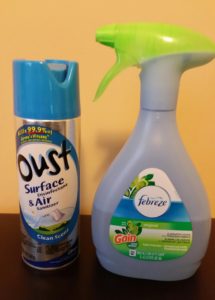
Gene Marks: Advice on nepotism, employee smell, HR friendliness, free coffee
By onBusiness Practices | Education | Legal | Market Trends
Editor’s note: Repairer Driven News regularly features pieces by prolific national columnist Gene Marks. While despite not being directly related to collision repair, they should still prove valuable to the small-business owners and employees which make up much of the industry. Here’s some advice from Marks’ “Practically Speaking” columns, originally published by Fortune magazine April 4 and April 18, that might be of interest to both.
My daughter is looking for work this summer, and I’d like to offer her a job in my office. Is that OK?
One of the biggest benefits of owning your own business is that you can put your children to work. I have many clients who employ their kids. But there are two things to keep in mind.
First, you can get great a tax benefit. You can pay your child up to $6,300 a year and assuming she doesn’t have any other income, she likely won’t have to file a return. Not only that, but you get the deduction.
Just be careful that your child is at a reasonable working age (So no, you’re not going have your 4-year-old answer the phones.) and can perform work that others would be needed to do. I like to use 12 years old as a rule of thumb.
And definitely make sure you grab that paycheck out of her hands and deposit it in a college savings account before she spends it on food or Xbox games!
Secondly, be careful of what your other employees might think.
For a very small business, nepotism is the norm and in many cases, needed. But as your company grows, you may find others in the company who also have kids resentful if your kids are getting the opportunities that aren’t offered to them.
You’re not breaking any laws per se — but you may create conflict. Everyone, be it your child or not, needs to go through the same process of interviewing and applying, and decisions need to be made as independently as possible.
Of course, no matter how objective you try to be everyone’s going to think your kid is going to get preference because you’re the owner. But following a process and having a policy will send a message that you’re doing your best to keep things as objective as possible.
One of my employees is a great guy and good at his job. But he — well — smells. I’ve had a few employees complain to me. What do I tell him?
No biggie — just keep a can of Febreze near his desk and ask anyone that’s walking by to give a quick spray. Problem solved. OK, just kidding.
But this issue is not a joke. I don’t care how nice a person someone is or how good a job they do, they’re still working in an environment with other nice and hard-working people. And they deserve to spend their 8 to 10 hours in safe and clean environment, too.
Working next to someone with B.O. really — well — stinks.
So it’s time for a closed-door session. Personal hygiene is expected of any employee (Is this in your company handbook? It should be.), and it’s not fair for someone to make things unpleasant for others.
So you need to compliment but also be upfront. Don’t lay it on others or say “Marjorie says you stink.” Make sure he knows this is your problem and no one else’s. Assuming his issue isn’t medical-related, tell him he’s got to clean up his act and that you’ll do your best to be upfront with him and let him know how he’s doing over the next few weeks.
But also let him know that poor personal hygiene could be grounds for termination (Again, it’s important to include professional hygiene in your handbook.) and that’s something no one wants. Follow these recommendations, and I’m sure everything will be coming up roses in no time!
I know this may sound very stingy, but my company spends hundreds of dollars each month on a coffee service with all sorts of gourmet coffees, condiments and supplies. Business is slow and I’m looking for ways to cut back. Is it wrong for me to ask my employees to chip in or even stop getting coffee altogether?
In the good old days you had a pot of coffee and one type of coffee called — coffee. Sure, it tasted awful, especially after left simmering for a few hours. Yes, there were often fights over whose turn it was to make a fresh pot, not to mention the inevitable fire that occurred from leaving the machine on all night. Ah, the good old days.
Now we have 67 different types of coffees and five kinds of sweeteners, not to mention the teas and hot chocolates. They’re all made on these complicated types of machinery that not only make coffee, but can fry an egg and pick up your dry cleaning at the same time.
These things come at a price. The cost of providing coffee today is absolutely more than it was back in the day. And for companies looking to cut back on expenses, this is a conversation that comes up more frequently than is often admitted.
But no. You can’t cut out the coffee. And you can’t ask your people to pay for it, especially if you still drive up to work every day in your BMW (and okay, it’s leased — but it’s still a BMW!). Asking your employees to pay for coffee will either make you out to be a cheapskate or potentially start a rumor that you’re heading into bankruptcy — neither of which are good options.
Actually, perks like coffee, a free pizza lunch now and then or a surprise batch of donuts do a world of wonder for morale. And they’re less expensive than giving raises. So keep the java flowing — and find some other place to cut back on your expenses. Honda Accords are nice. Just saying.
My human resources manager is a very nice and social person. Too social, actually. She has become very friendly with other people in the company and I know that she sees some of them outside of work at parties or at their homes. No, she is not romantically involved with any co-workers. But, as an HR person, I get concerned that she’s too friendly and this could compromise her job. What do you think?
HR managers hold a very trusted role in an organization, don’t they? You want them to be close with your employees, to keep an ear on the ground and to listen out for concerns and issues. You want your HR manager to be an advocate for your employees and make suggestions about good benefit plans and other ways to attract talent and keep your people happy.
But in the end, your HR manager is working for you. Her job is to balance what’s best for the company with what’s best for its employees, who (hopefully) have the same goals.
Unfortunately, there’s little you can do here. As long as you’re not aware of any inappropriate or unprofessional behavior you can’t tell someone else who she can and can’t socialize with outside of the office. You can certainly talk with her and be frank about your concerns so at least she knows this is on your mind. But in the end you have to leave it to her to be professional and know her boundaries.
These Q&As were first published in Fortune magazine April 4 and April 18.
Gene Marks is a columnist, author, and small business owner. http://genemarks.com. Gene writes every day on business, politics and public policy for the Washington Post and weekly for Forbes, Inc. Magazine, Entrepreneur and the Huffington Post. Marks has written 5 books on business management, specifically geared towards small and medium-sized companies. His most recent is “The Manufacturer’s Book of Lists.” Nationally, Marks appears on Fox News, MSNBC and CNBC discussing matters affecting the business community. Through his keynotes and breakout sessions, Marks helps business owners, executives and managers understand the political, economic and technological trends that will affect their companies so they can make profitable decisions. Marks owns and operates the Marks Group PC, a highly successful 10-person firm that provides technology and consulting services to small and medium-sized businesses. Prior to starting the Marks Group PC, Marks, a Certified Public Accountant, spent nine years in the entrepreneurial services arm of the international consulting firm KPMG in Philadelphia, where he was a senior manager.
“Can an HR Manager Be Too Friendly?”
Gene Marks, “Practically Speaking” Q&A in Fortune, April 4, 2016
“What Business Owners Should Know About Nepotism, Smelly Employees”
Gene Marks, “Practically Speaking” Q&A in Fortune, April 18, 2016
Images:
Employee body odor can be an issue at a workplace. Never at Repairer Driven News, though. (John Huetter/Repairer Driven News)
Columnist Gene Marks. (Provided by the Marks Group)

